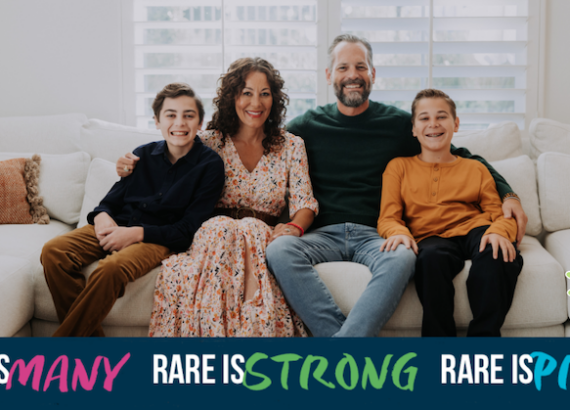My Story by Kala MCWain

Our son, Braxton, was born with a rare genetic disorder called Phenylketonuria, or PKU for short. This genetic disorder is screened for at birth using the newborn screen and is diagnosed in 1 in 10,000-15,000 newborns. Braxton lacks one enzyme in his liver that is responsible for the breakdown of 1 out of 20 amino acids found in a protein called phenylalanine. If left untreated, it can cause behavioral problems, seizures, severe intellectual and developmental delay. Before 1953, patients with PKU were untreated and institutionalized due to these developmental problems caused by high levels of phenylalanine in their blood. After 1953 and today, the standard treatment for PKU is a protein-restricted diet and formula, with frequent lab draws.
Braxton is considered a non-responder to the two pharmaceutical drugs available on the market today, so diet for life with low protein medical foods and formula is our only choice. He will never eat meat, cheese, eggs, dairy, cake, cookies, bread, pasta, rice, baking flour, etc. All of Braxton’s food must be weighed and tracked daily to allow for 2.5 grams of protein from food and 60 grams of whole milk. It is a daily struggle to find things on grocery store shelves that he can eat because the FDA allows nutritional labels to be rounded, and unrounded amounts of protein are crucial to the PKU diet. We rely heavily on low protein modified foods from a specialty store called Ajinomoto Cambrooke, which can only be obtained through a prescription from a metabolic physician. A 17.6oz bag of pasta is $11.99, a 28oz loaf of bread is $14.49, 2 pounds of baking mix is $15.99. Despite requiring a prescription for these low protein medical foods, insurance does not have to help; in fact, some insurance companies don’t help pay for the formula PKU patients are required to drink for life. A one-month supply of formula, which is seven cans, costs $1,000 before insurance. We are thankful that our current insurance carrier provides formula coverage, but they still consider low protein medical foods to be experimental and provide no coverage.
Even though diet for life is the only proven effective treatment for all patients with PKU, because of the ERISA law, our insurance company is allowed to get around the state mandate in Wyoming that says insurance companies must cover these items. I have met with Wyoming’s state representatives about co-sponsoring the Medical Nutrition Equity Act (S. 2013/H.R. 3783). We have also met with my husband’s HR department to discuss a stipend since their insurance plan does not provide coverage, and we have been denied. The fact that families like ours have to choose between paying the light bill or buying the medically necessary foods for our loved ones is sickening.
I will not stop advocating and raising awareness until something changes. I don’t do this because I need to or want to; I do this because I have to.
Guest post by Kala McWain, Rare Mama to Braxton







